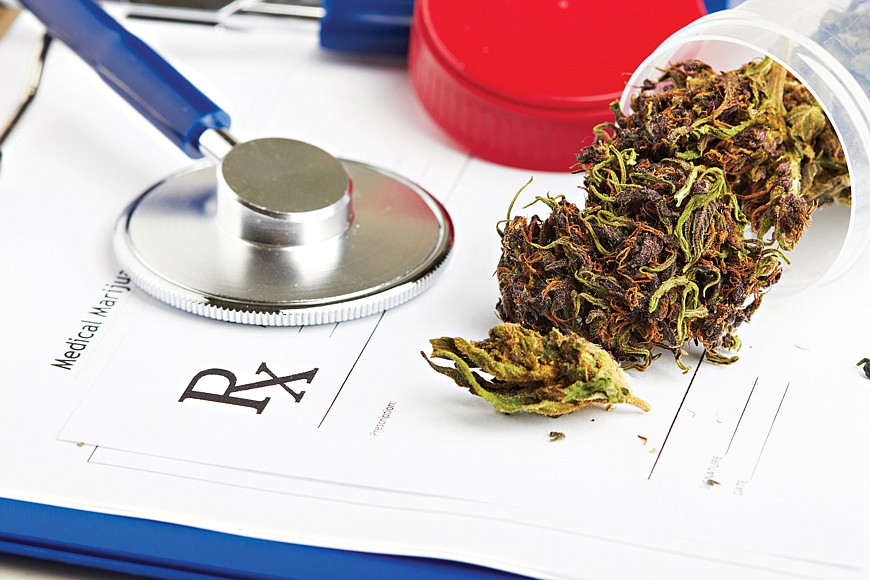- July 26, 2024
-
-
Loading

Loading

By Matt Harrison and Adrian Moore | Contributors
Florida’s medical cannabis program, created by voters passing Amendment 2 in 2016, is broken before it even gets started.
The Department of Health’s Office of Medical Marijuana Use, responsible for devising and implementing the regulations, has delayed months past its legislative deadline, prompting an exasperated Legislature to threaten to cut its funding.
The standoff has led to a growing number of medical cannabis patients angrily awaiting to access what the voters approved.
While Amendment 2’s brevity provided political advantages, its lack of detail on which to build a workable implementation structure led to vague and unfocused implementation.
As a result, implementation structures — the nuts and bolts of how this nascent industry gets off the ground — have been controversial, ineffective or outright obstructive, leading to confusion in the market, sellers’ unwillingness to participate and plenty of lawsuits. This is not a product failure, but an implementation failure.
But Florida’s structural problems of medical cannabis implementation can be fixed. With a wealth of medical cannabis market “lessons learned” from several states, as well as experience with everything from pharmaceuticals to alcohol, to draw on, Florida can repair this market.
Experience from other states shows that, like any other commodity, the key to success is providing a workable structure for safe products to reach consumers — in this case patients. That means crafting goal-focused implementation structures that facilitate, rather than obstruct the market.
So first and foremost, let’s be clear about this: The goal of Amendment 2 is for medical consumers to access a safe, sufficient and consistent supply of quality medical cannabis at a price that prevents black markets from forming. All implementation must serve this goal.
Currently, regulation limits producers from entering the market, and administrative procedures are unnecessarily complex so as to enforce those limits. While guarding for unscrupulous and unsafe practices by sellers and ensuring sales are medical in nature make sense, suppliers must be able to enter easily and compete in price — even in medical cannabis — to have a functioning market.
But Florida’s aggregate license caps, mandated vertical integration, prohibited trade, and local pre-emption, among other rules, only impose massive barriers to entry that have a long history of failure in states that implemented medical marijuana programs before Florida.
Policy innovations such as temporary licenses, separate licenses, local delegation and agency performance standards could have guided development of a market structure likely to succeed.
Importantly, while cannabis is similar in many ways to other medicines, it is dissimilar in several other important aspects. Its rapid depreciation due to perishability and its sporadic production cycles as a plant product mean the market needs even more producers to ensure a steady, fresh, high-quality supply.
Florida’s humid climate is not as favorable as many other states for growing cannabis, and the state lacks a commercial base or experience in the industry. Moreover, different ailments are likely served by different products, so diversity of offerings is crucial.
This means production, whether from Florida or not, must be not just managed lightly but encouraged. Current limits on market entry for producers and a ban on consumers importing or growing their own medical marijuana have resulted in massive market shortages and inconsistent availability.
Shortages drive up prices, encouraging consumers to purchase cheaper and less-safe products illegally — the exact opposite of our goals!
While risks can be posed by unsafe medical cannabis products, such as one might find on the black market, arguably a greater risk is posed when so many patients are unable to obtain medically necessary products and become desperate.
And then there’s the “shame game.” Consumers must register with the DOH before being allowed to buy medical cannabis. No other medication has this requirement. You have a prescription then you go to a pharmacy and get your medication. Both doctor and pharmacy are required by law to protect your health and behave ethically.
Fully embracing medical marijuana as a bona fide medical treatment means treating it as a medical market commodity, not as a public hazard. Florida’s medical cannabis program is at a crucial juncture and only by embracing sensible administrative approaches that encourage safe and abundant supply can we get the system on track to success and serving patients desperately waiting for legal relief.
Matt Harrison is a senior fellow with Reason Foundation and author of California’s Proposition 64. Adrian Moore is vice president at Reason Foundation and lives in Sarasota.